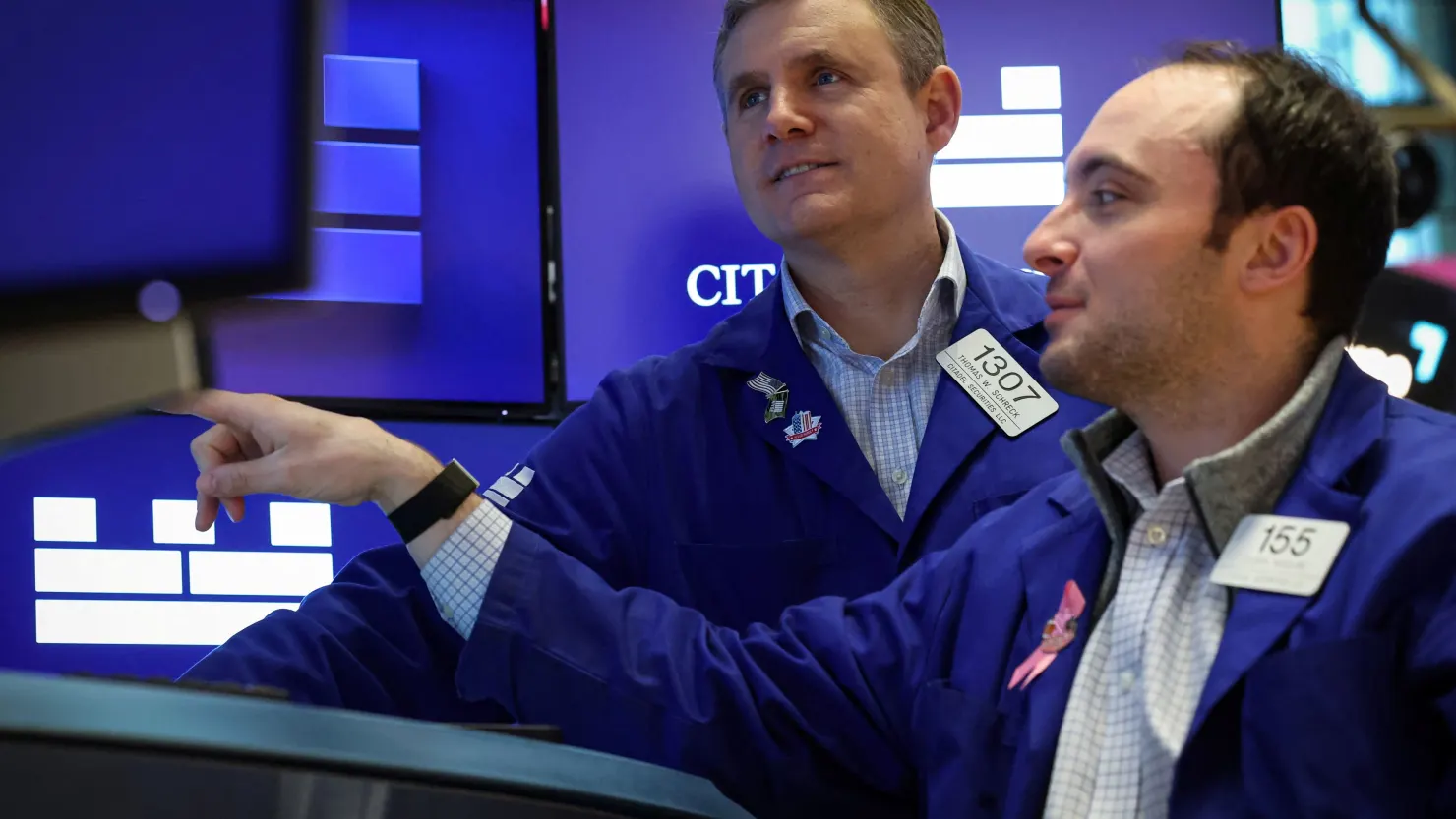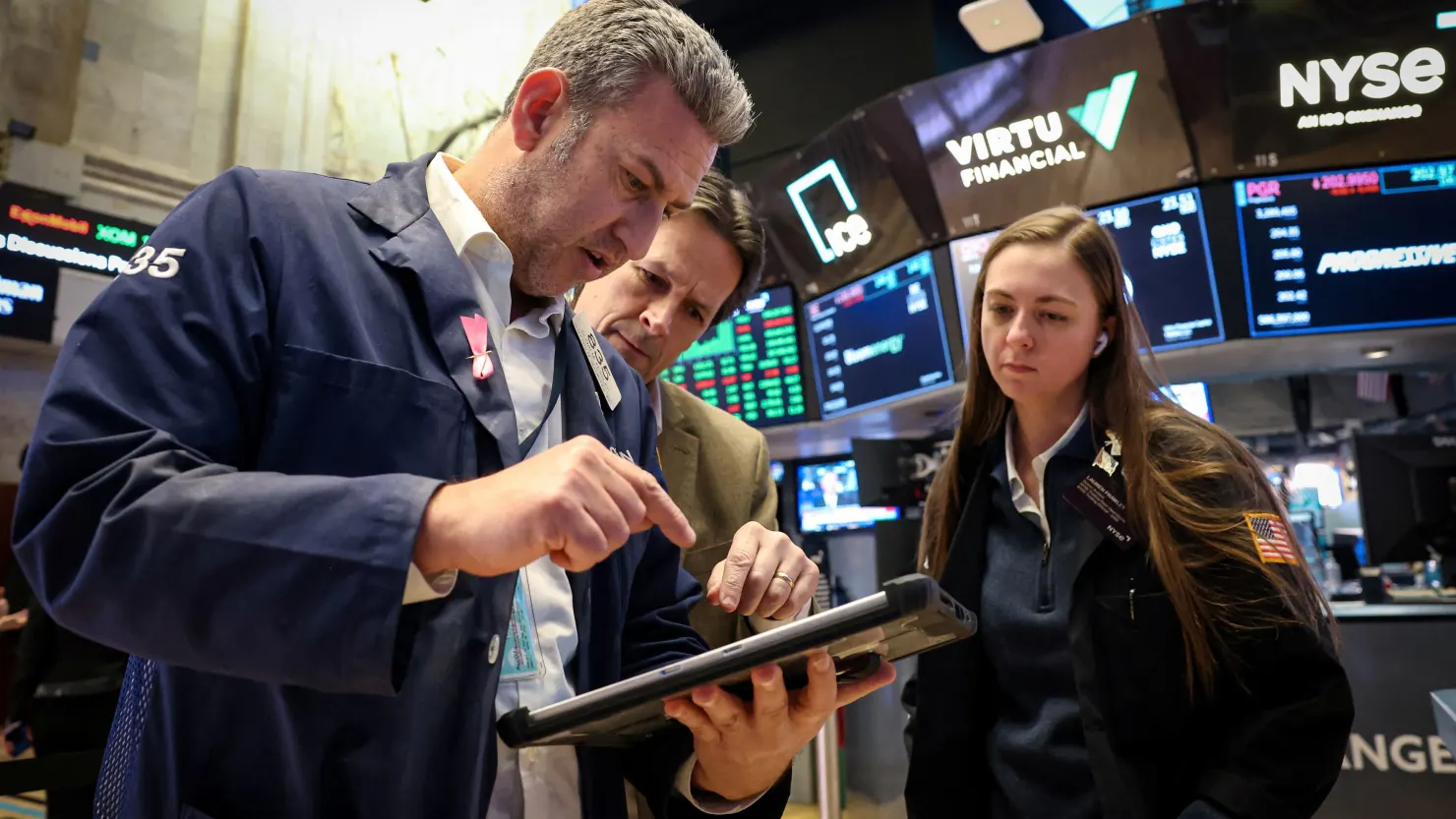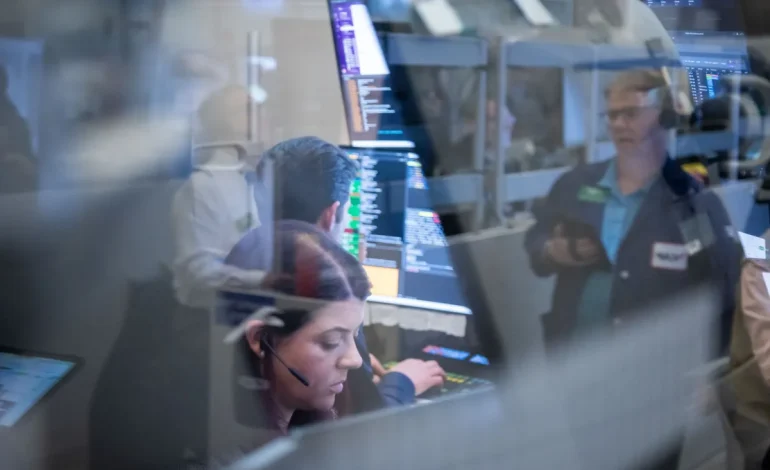Stock futures rallied Monday after the US announced a temporary exemption on certain technology imports from new tariffs, providing a reprieve for major tech companies and lifting investor sentiment following a volatile week on Wall Street.
Futures tied to the Dow Jones Industrial Average rose by 390 points, or nearly 1%. The S&P 500 futures advanced 1.4%, while Nasdaq-100 futures climbed 1.6%, reflecting a broad-based uptick in equities. The move follows late-Friday guidance from US Customs and Border Protection indicating that smartphones, computers, semiconductors, and other electronics would be excluded from the new “reciprocal” tariffs announced by President Donald Trump earlier this month.
The exemptions appeared to benefit tech giants in early trading. Apple shares jumped over 5% in the premarket, while Nvidia gained around 2%. The Technology Select Sector SPDR Fund (XLK) also rose more than 2%. Asian and European markets echoed the optimism, with Hong Kong’s Hang Seng Index gaining 2.4%, Europe’s Stoxx 600 index rising 2%, and Japan’s Nikkei up 1.6%.
However, some of these gains were tempered after President Trump and Commerce Secretary Howard Lutnick stated over the weekend that the exemptions may not be permanent. Trump clarified via a post on Truth Social that the exempted goods are still “subject to the existing 20% Fentanyl Tariffs” and may be reassigned to a different tariff category in the near future. Analysts noted that these evolving signals from the White House added to market uncertainty.
Since the initial announcement of the reciprocal tariffs on April 2, major indexes have experienced sharp declines. The S&P 500 has dropped 5.4%, the Nasdaq Composite about 5%, and the Dow Jones Industrial Average around 4.8%. Apple, in particular, lost nearly $640 billion in market capitalization in the days following the initial tariff announcement.
Last week saw dramatic swings across financial markets. The CBOE Volatility Index surged above 50 on Thursday before equities rebounded strongly on news of a 90-day reprieve for select tariffs. Some analysts attributed mid-week gains to a combination of short covering, stronger-than-expected bank earnings, and investor hopes that the Federal Reserve may step in to ease financial conditions if necessary.
Goldman Sachs also added to Monday’s positive tone, reporting earnings that beat analyst expectations. Shares rose nearly 3% in premarket trading after the bank posted $14.12 in earnings per share on revenue of $15.06 billion. Conversely, Pfizer shares slipped over 1% after the company announced it would discontinue development of its daily weight-loss pill due to potential liver-related side effects observed in clinical trials.
Outside the US, global currency and commodity markets reacted to the shifting policy landscape. The Bloomberg Dollar Spot Index fell to its lowest level since October amid investor concerns over the clarity of US trade policy. Gold prices hit a record high, while crude oil saw mixed trading as market participants weighed the impact of potential global economic slowdowns against geopolitical risks.
While the tariff pause temporarily alleviated pressure on consumer electronics—one of the largest categories of US imports from China—analysts remained cautious.
“This will ease the immediate burden on companies like Apple,” said Derek Halpenny of MUFG. “But it does little to restore investor confidence, especially with persistent volatility and uncertainty surrounding future tariff enforcement.”
Further complicating the outlook are anticipated developments later in the week, including earnings reports from major banks and chipmaker TSMC, as well as economic commentary from Federal Reserve Chair Jerome Powell. Market watchers will also be focused on US retail sales data and China’s GDP report.
In the background, concern remains about broader economic implications. JPMorgan’s chief economist Bruce Kasman warned that despite the exemptions, the 10% flat global tariff and a 145% levy on Chinese imports remain substantial shocks to the system. The firm continues to project a 60% chance of a global recession.
With input from CNBC, the Wall Street Journal, Reuters, and Bloomberg.










The latest news in your social feeds
Subscribe to our social media platforms to stay tuned